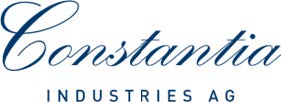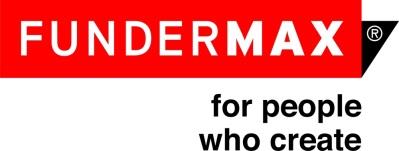Excellence
Since the 1990s, in the German-speaking world the term Excellence has been associated with the approach to the design and management of companies that is aimed at future viability.
Excellent companies create balanced, sustainable benefits for all stakeholders while achieving long-term above-average (economic) results. The quality of the service provided is just as important as the responsibility within the ecosystem. Current Excellence Models (e.g. the EFQM Excellence Model) combine orientation, realization and results into a consistent concept of sustainable management.
We provide consulting services to our clients in the successful use of this comprehensive approach – for design, self-assessment and further development.
Deepening Excellence
We have been actively involved in the development of the Excellence approach in Europe for almost 30 years. The resulting, practice-proven and comprehensive approach in the design and evaluation of excellent companies using the EFQM Excellence Model has been proven to contribute to corporate success.
The aim of Excellence is clear: to bring Europe’s economy to the top. Since then, many experts in Europe have come to associate excellence with even better quality, mature, sustainable organization, better long-term results, and those companies that strike a balance between short- and long-term orientation while involving all stakeholders.
Using excellence in organizational development
Designing Excellence provides a structured development path to an agile organization. The focus is on people, and consistent leadership is oriented towards vision, meaningfulness and values.
Today, many organizations across all industries and sectors of society are using the Excellence Model, originally created by industry, in their ongoing organizational development. For a long time, modern non-profit organizations have understood that the living excellence approach, especially for organizations that do not follow an EBITDA margin or value growth as a goal, provides a helpful framework to professionally and purposefully align the organization with qualitative goals and establish quantitative assessments.
In the current Excellence approach, important management trends are bundled and combined into a practically useful framework.
- Focus on Purpose and Values: The meaning and purpose of the organization provide the framework for motivated people – equality, equity, diversity, acting in partnership in the ecosystem instead of a winner / loser mindset
- Strong leadership, empowerment at all organizational levels, courage and the will to shape and thus agility in dynamically moving markets and environments
- Consistent strategic implementation, balanced for stakeholders with consistency from strategy and value creation to targets and metrics
- Clear development path – Continuous improvement and creativity that supports the bold stepping out of the comfort zone
Where Excellence is heading
The original business excellence focus on product quality, profitability, value creation processes and all stakeholders is currently being expanded to include genuine sustainability, which in combination with “traditional excellence” actually combines ecology, economy and social responsibility.
The simple result: an excellent organization acts responsibly in a sustainable manner, actively incorporating the state of knowledge and technology.
This can clearly be derived from the long-term orientation of the Excellence Approach and is reinforced by the requirement to substantially support the Sustainable Development Goals (SDGs).
Your benefit:
We were actively involved in the development of the current EFQM model. With this background and using many years of implementation experience, we support our customers in applying this powerful approach to action
Processes, management systems
Develop processes in a well-founded way
Further development into an excellent company involves the optimal design of the value chain and the processes as a central component. It is important to create a common picture with regard to tasks, responsibilities and competences
Your advantage lies in the increase of effectiveness and efficiency of the resources used (working time, equipment, material, information), in the reduction of misunderstandings, conflicts and discrepancies and in the creation of a base that can be developed.
Optimally designed processes are not rigid or inflexible, but clear, lean and capable of agile further development.
Your benefit
- We contribute our expertise in process and structural design – both in terms of content and procedure
- We shape the change associated with process design together as organizational development
- Many years of experience and in-depth detailed knowledge of industries, market requirements and specific value chains allow for tailor-made solutions
Developing organizations
Together with our customers we develop organizations from their respective status. Triggers come either from the market (changed requirements, competition, etc. …) or from within (rigidity, change of management, need for restructuring, corporate requirements, etc. …)
Developing organizations always means reflecting on culture and consciously setting it in motion. We take into consideration that changing a corporate culture cannot be a radically fast process.
In terms of content, we are currently and frequently shaping the change from classic, rather centralized organizational cultures, which are neither fluid nor smooth, to agile structures.
Courage to be independent, trust and autonomy support creativity and the ability of employees to find solutions, avoid one-sidedness and thus lead to joy.
Your benefit
- Joint design leads to acceptance and introduction of own creativity
- External guidance allows sensitive issues to be addressed and moved, habits to be broken, and culture to evolve
- Active design, the active taking up of requirements is basically preferable to passive waiting – our experience supports this step
Designing management systems
Management systems ideally map leadership, value creation and support in organizations, assist the management of operations and systematically address further development, and often have a thematic focus.
However, the central basis must always be value creation geared to market and customer requirements, which contributes to differentiation in line with the strategy.
The thematic focus may concern quality, environment, occupational safety, IT security and other specific topics. Modern management systems incorporate these issues.
Your benefit
- We have been designing and implementing management systems for and with various companies for many years
- In doing so, we draw on a wide range of normative standards and have a rich portfolio of pragmatically simple, effective solutions at our disposal
- The (daily) benefit for the employees is in the focus – this also causes improvements in effectiveness and efficiency, reduces duplications and enables focus on future requirements
Your benefit from a modern management system
… that works fluidly, smoothly and digitally:
- The management system is an important information infrastructure for orientation, goals and the basic rules of the game; this framework has to fit!
- It is important to courageously and responsibly interpret the topic standards – instead of word-for-word mapping of standards in the management system and detail-loving bureaucracy, the management system must be designed along the real DOING …
- Committed to reducing levels of detail in all specification documents – Our assumption: competent, committed people act, do, and implement
- New developments in value creation (new market requirements) lead to changes in the management system
- Flexible handling of standards and norms means that they serve as a check, as an explanatory aid for resolving complexity, and help to ensure that important, quality-assuring value creation steps are not overlooked even in the case of rapid change
- On the one hand, models help to resolve complexity and to find ways in case of uncertainty; on the other hand, models can seem rigid and bureaucratic – so it is important to find a good way
The pragmatically well-designed management system offers …
- as a well-founded image of reality, a springboard for change and the elaboration of future conditions
- Operationally high flexibility (fluid, smooth) – with appropriate responsibility on site and valid data, changes can be made very quickly with good traceability – quality and environmental impact remain transparently secured
- The opportunity to move into productions towards digitally supported workshops with a high level of personal responsibility and exciting depth of value creation
- and supports the excellent organization: everything is standardized, secure, clear, unambiguous, controlled and traceable and at the same time agile, changing, fluid, smooth
Our services
- Design of the structure and organization of the management system with solution approaches for the stable, modular core so that it fits now and in the future according to the strategic orientation
- Simple suggestions for clear structure (develop organizations) as organizational home for people
- Accompaniment of internal development work, focus on knowledge transfer and internal design work (only internally developed management systems remain alive in the long term)
- Interpretation and integration of specific requirements of the underlying standards (ISO standards, industry standards) with the claim of pragmatic fulfillment and implementation of these standards
- Design of management systems as leadership systems or systems that support leadership
- Ensure stability, as up to 20% of the structure is constantly in motion – this does not mean that content is invalid, but in adaptation, improvement and evolution
- Support for living agility: agile organizations in particular adhere to rules – appropriate compliance creates trust
Reference projects





Customer testimonials
“Working in the free space of the FACT-LAB opens the horizon and thus leads to creative approaches that positively support the process through different visualization variants. I have found Shared Design to be a very goal-oriented creative method in which problems are very well grasped in the way of a sound factual analysis and solution directions are developed.”
Carinthia Regional Fire Brigade School,
Ing. Klaus Tschabuschnig (Head of the LFS Carinthia,
Head of Training at the ÖBFV)
” According to our motto “Simply the best”, companies of our group have been working with FACT since 2000. As an industrial company, we particularly appreciate the pragmatic approach and the combination of technical and methodological expertise.”
Constantia Industries AG,
Dr. Erlfried Taurer (CEO)
